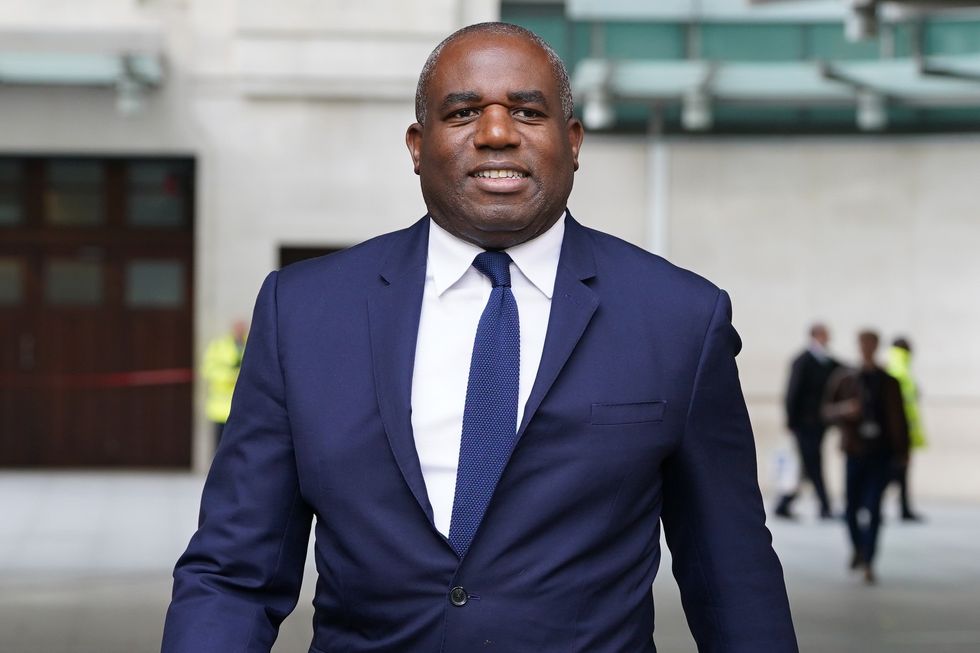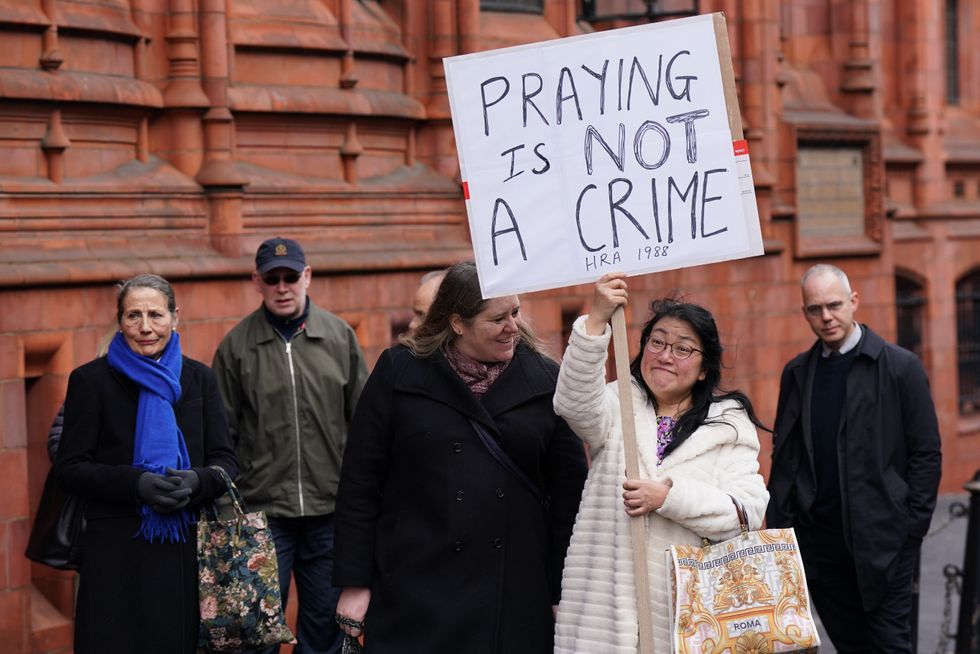Sir Keir Starmer’s popularity is in “freefall” as new polling has revealed the Prime Minister has set a record not seen for at least 40 years.
Data compiled by PollBasePro found the Prime Minister’s Labour fell under the 30 per cent mark after just 70 days in office.
According to Guido, the benchmark has not been reached for at least 40 years and is around 11 times faster than the average of 765 days.
By comparison, it took Starmer’s Labour predecessors Blair and Brown, more than 1,000 days to reach the same level.
For the Conservatives, Margret Thatcher took 676 days, Boris Johnson took 762 days, and John Major took 397 days.
Commenting on the analysis, former aide to Margret Thatcher, Nile Gardiner, wrote on X: “Starmer’s popularity is in freefall”
FOLLOW BELOW FOR THE LATEST UPDATES
Scotland’s independance dream NOT ‘over and done with’, pollster warns
A top pollster has warned it would be foolish to assume Scotland’s independence dream is “over and done with”, despite there not being another clear path to a referendum.
Speaking ahead of the 10-year anniversary of the vote on September 18, former director of Ipsos Mori in Scotland, Mark Diffley, said it is currently “unlikely” the SNP would be able to form a Government after the next Holyrood election in 2026.
Diffley said: “What happened was [the referendum] went on to dominate how we voted in pretty much every form of election, I would argue, until this year.”
Since SNP’s landslide general election win in 2015, the party has lost more than a third of its vote and fell to nine seats at the last general election.
Pointing towards NHS and school system satisfaction, Diffley said: “These issues have replaced the constitutional question as the real barometer around which people will decide how to vote.”
Diffley added that “there currently is no vehicle for achieving a second referendum either legally or politically, because the SNP is weak” but said there is still an appetite for it among Scots.
However, the expert pollster said that should the SNP “mend itself” it is perfectly feasible that independence could be back on the table.
He added: “The sense of flux in the political world is greater than I’ve ever seen it.
“You be a fool to think that’s a done deal – anything with that level of support is something that should have red lights flashing for unionist parties.
“So absolutely not over and done with.”
David Lammy ‘s agenda on trip to Norway

David Lammy
PA
The Foreign Secretary is set to discuss deepening defence and tackling threats from Russia when he meets his Norwegian counterpart on Wednesday.
David Lammy called Norway “our eyes and ears in the High North” and “a key ally in the defence of Nato’s northern flank” ahead of a trip to the country.
He will visit Norwegian Joint Headquarters, the country’s military command centre, with Norwegian Foreign Minister Espen Barth Eide.
The UK and Norway will agree to further intelligence sharing and cooperation to counter Russian disinformation networks in Europe and beyond, the Foreign Office said.
The Foreign Secretary said: “With the return of war to the European continent, the UK’s relationship with Norway, as a key ally in the defence of Nato’s northern flank, has never been more important.
“We are both unwavering in our support to Ukraine, and together we are training and supporting the Ukrainian armed forces including boosting the country’s air defence and maritime capabilities.
“Norway acts as our eyes and ears in the High North; our joint work at the Norwegian military headquarters underlines the importance of our work to bolster Europe’s defences.
“Euro-Atlantic security is this Government’s foreign and defence priority.”
New law to ban protests outside abortion clinics

Supporters of Father Sean Gough, a Catholic priest of the Archdiocese of Birmingham, and Isabel Vaughan-Spruce, outside Birmingham Magistrates’ Court where they are accused of protesting outside an abortion clinic inside a Birmingham abortion facility censorship zone
PA
A new law which will ban anti-abortion groups from protesting within 150 metres of clinics will come into force at the end of October.
Following months of delays, the buffer zones outside abortion clinics in England and Wales aim to ensure women do not face harassment outside clinics.
Delays on implementation under the previous Conservative Government centred around the issue of silent prayer after campaigners raised concerns that the law would be watered down in practice if silent prayer was not also banned, while anti-abortion groups argued that doing so would threaten their rights to freedom of expression and religious belief.
The Home Office has said the zones will come into effect from October 31.
The law will make it illegal for a person to do anything deemed to intentionally or recklessly influence someone’s decision to use abortion services, obstructs them, or causes harassment or distress to someone using or working at such premises.
It is understood silent prayer could come within this scope with the maximum penalty for anyone convicted being an unlimited fine.
Safeguarding minister Jess Phillips said: “The right to access abortion services is a fundamental right for women in this country, and no-one should feel unsafe when they seek to access this.
“We will not sit back and tolerate harassment, abuse and intimidation as people exercise their legal right to healthcare, which is why we have fast-tracked this measure to get it up and running without further delay.
“For too long abortion clinics have been without these vital protections, and this Government is determined to do all we can do to make this country a safer place for women.”
However, Catherine Robinson, a spokesperson for Right To Life UK, said the zones will mean “vital practical support provided by volunteers outside abortion clinics, which helps to provide a genuine choice, and offers help to women who may be undergoing coercion, will be removed”.
Inflation update: CPI rate UNCHANGED at 2.2%
 High inflation and interest rates have been a weight on the UK economy GETTY
High inflation and interest rates have been a weight on the UK economy GETTY
Inflation for the 12 months to August 2024 remained unchanged from the previous month of 2.2 per cent, according to figures from the Office for National Statistics (ONS).
The consumer price index (CPI) remains broadly in line with the Bank of England’s desired two per cent target for inflation which means further interest rate cuts could be on the horizon.
The central bank’s Monetary Policy Committee (MPC) voted narrowly to slash the base from a 16-year high to five per cent with another reduction expected later this year.
Majority of Britons believe NHS funding is not spent as effectively as it should be
Which of the following do you think is the bigger problem with NHS funding currently?
The NHS does not receive enough funding: 33%
The funding the NHS does receive is not spent as effectively as it should be: 55%https://t.co/2LeLwTX3yA pic.twitter.com/dY6AYkmKTL— YouGov (@YouGov) September 17, 2024